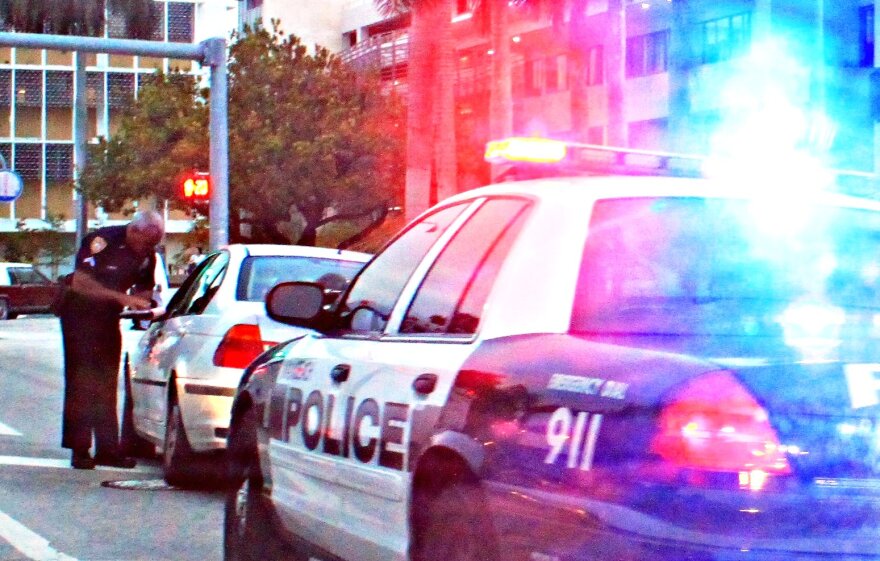For many people, interactions with law enforcement can be stressful. But for people who have difficulty communicating, these interactions can lead to grave misunderstandings. Some lawmakers are trying to make those interactions safer.
You’re driving down the road, maybe a hair over the speed limit, when you hear those sirens. It’s the cops. We all know that sinking feeling. But imagine if you can’t hear those sirens. For the deaf and hard of hearing, miscommunication with the police is a real concern. But some state lawmakers are trying to fix that. Representative Victor Torres of Orlando wants to mark driver’s licenses with a symbol signifying the driver is deaf.
“This symbol on the license will alert the officer to the fact that the driver is hard of hearing or deaf, and assist them when identifying how best to communicate with the driver,” he said.
Academy Award winner Marlee Matlin of West Wing fame is working to educate people on deaf rights. Matlin herself is deaf and is also married to a police officer. Here she is speaking through an interpreter.
“Getting stopped by the police, even at a routine traffic stop, can often be a scary experience. For those of us who are deaf or hard of hearing, it can be even scarier. When officers often don’t realize we can’t hear them, it can lead to confusion or worse,” she said.
From Michael Brown in Ferguson to Freddie Gray in Baltimore to Corey Jones in Palm Beach Gardens, law enforcement incidents dominate the news. June McMahon is the Vice President for the Florida Association of the Deaf. McMahon says these interactions between officers and deaf people can get out of hand. Here she is speaking through an interpreter.
“An officer might speak and the deaf person literally doesn’t even know they’re being spoken to, or they misunderstand what’s being said. Or sometimes you might have a deaf person and perhaps there’s an officer behind them, yelling at them to stop walking, and the deaf person is ignoring them. Not because they’re in fact ignoring them, they don’t even know they’re being spoken to because they can’t hear!” she said.
In certain cases, deaf people may be arrested and handcuffed. Even if they cooperate, June McMahon says this can be debilitating for people who use sign language.
“Yeah I mean it’s a situation that’s becoming really, really difficult. When a deaf person is cuffed, they can’t communicate. Yeah I can’t imagine. I really, it’s never happened to me, but if it were to happen to me I wouldn’t even be able to think straight. I can’t even imagine,” she said.
Some interactions between police and deaf people end violently. Robert Kim, Pearl Pearson and Jonathan Meister all attempted to alert officers they were deaf. But because of the communication barrier, they were misunderstood and physically attacked by police. Representative Mike La Rosa of Saint Cloud says the bill could prevent these kinds of issues in his district.
“This is a real issue, and I’ve got a lady in my district and I think you know who she is, who’s given me some examples of kind of what she’s gone through....just a little bit antagonized, and it’s kind of hard to understand. And when you put yourself in their shoes when they do get pulled over, they’re in a circumstance when they need to identify that they can’t hear, it can be very intimidating on their part,” he said.
The House Highway Safety Subcommittee passed the bill unanimously Monday.




